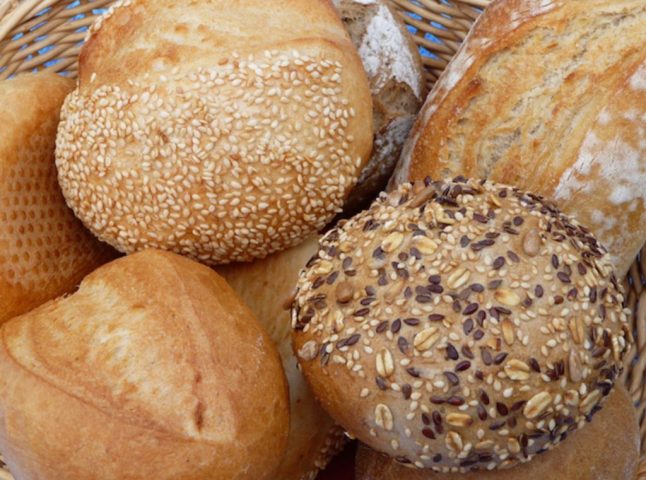
Pulp Diction: Beware of doggerel
May 11, 2016
In the Green Heart of Germany: The Very Best of Thuringia
May 19, 2016If the Germans were prone to gluten sensitivity and wheat allergies the way Americans have proven themselves to be in the last decade or so, their country surely would have erupted into a nationwide epidemic by now. The way they consume bread here is something of a spectacle. We can speculate as to whether it’s something in the water or a kind of genetic resistance, but most would agree that it has something to do with the quality of the wheat, and quite possibly the fact that it is neither genetically modified nor tainted with megadoses of glyphosate (aka the weed killer sold as RoundUp).
Whatever the case may be, bread is eaten here in Germany at a staggering pace at every meal of the day, not to mention the healthy portions of cake and pasta, and of course the unapologetic quantities of beer. The sight of it all is enough to render a celiac truly inflamed. The prevalence of baked goods—rolls, loaves, pretzels, etc.—is stunning, for bakeries here are even more ubiquitous than Starbucks in the States. You can literally stand in the middle of the Marktplatz and spot three or four signs that say “Bäckerei” just by rolling your doughy eyes. Some will be national chains, some might be smaller local chains, and some are going to be independent family-owned bakeries; and naturally, every grocery store has its own huge department for fresh baked goods.
Not only that, but you can also fill a bag with fresh rolls, say ten or twelve, in assorted varieties, and then pick up a couple bottles of quality brew (half liter bottles, mind you), and end up paying less than you would for a single cup of latte at a Starbucks back home. This is no exaggeration. It’s no wonder they eat so much bread, drink so much beer, and end up preparing their own coffee at home. Maybe it has something to do with taxation or regulations, but the economy of edibles is entirely different here.
I could spend the day trying to rationalize it all, and some days, I must confess, I do: the heirloom wheat strains, the hyper competitive marketplace of bakeries, the consumer protection laws, the cultural legacy of pumpernickel. But most of the time, I just have to sit back and enjoy it.
Back home on the Central Coast, artisanal breads and homemade sourdoughs have become quite the rage. Here in the heartland of Germany however, the Volk seem to have no appetite for these six or seven dollar specialty loaves. The potato bread, seeded bread and whole wheat bread sold in bakeries and grocery stores for about two euros a loaf seems to be perfectly satisfying; not only delicious but it hardly seems to elicit an allergic response from anybody.
Likewise, the Zeitgeist of probiotic sauerkraut has yet to take hold here in the Teutonic homeland. Regular sauerkraut—cooked and therefore nearly devoid of beneficial bacterials—is commonplace here, and cheap, between one and two euros for a good sized 650 gm (22.9 oz.) jar. We’re still looking for good sources of raw sauerkraut and good sourdough, and curious to see how much they will charge for it. We know it’s available somewhere, but pretty sure that producing it in cottage industry fashion is unlikely to be as economically viable here that way it has proven to be for people like the Little Red Hen or Vert Foods in SLO County.
* UPDATE: Raw sauerkraut is readily available here and sold in bulk in certain grocery stores. It goes for 2 euros a kilo, roughly a dollar a pound.
Read on: For more enchanting stories about our adventures in Germany, check out the following articles:






1 Comment
Just for fun….. research “Pumpernickel” Great name!